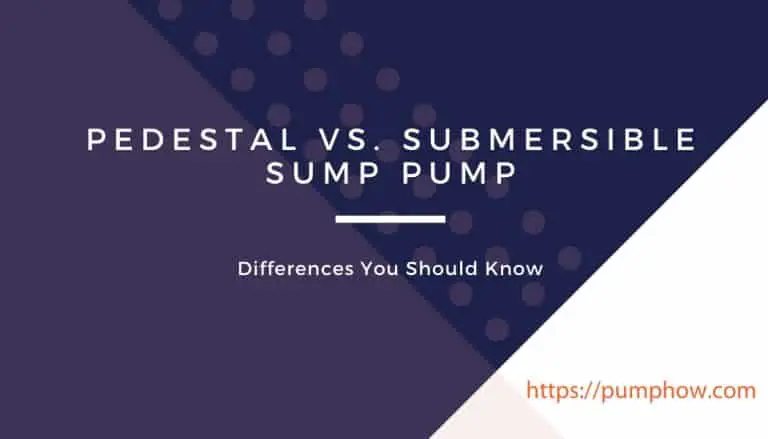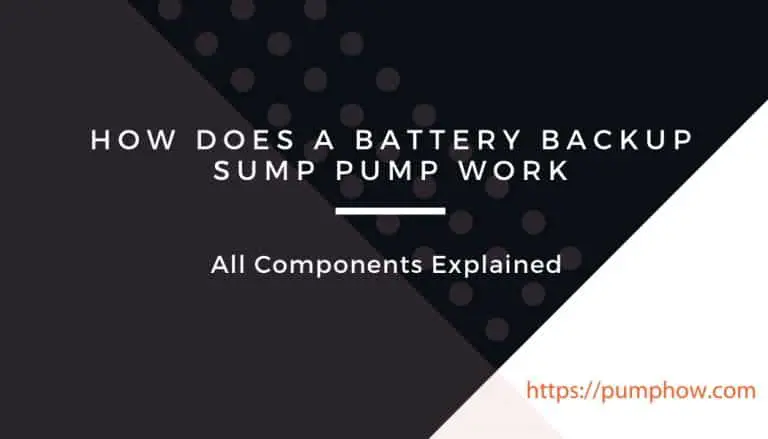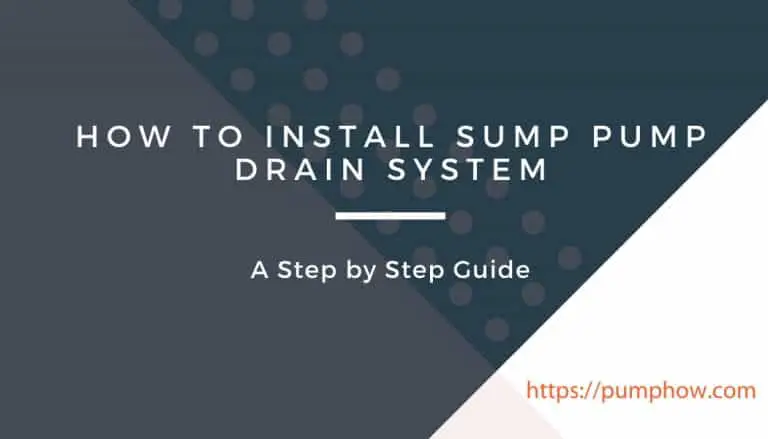Several reports from the insurance industry say that water damage and basement molds are the principal cost drivers to a whopping $2.5bn in annual expenses for home repair and maintenance in the United States where 60% of residences have wet basements.
The above pieces of data help anyone understand the interrelation between the huge cost of home maintenance and the culprit behind this. Just imagine what would happen if we couldn’t use sump pumps to keep our basements dry and prevent them from flooding?
That’s precisely what our home’s sump systems do and why we can’t risk letting our basements be without them. In this article, you’ll know what makes a sump system what it is and why we can’t say no to one.
What is a Sump Pump and What Does It Do?
Heavy rains and other disasters leave an additional volume of water for pooling around your home’s basement and foundation. This excess water can eventually cause irreversible damages to the basement and needless to say, your entire home if you don’t take steps.
A sump pump is a mechanical device that eliminates this water and prevents flooding to keep your basement as much free of humidity as possible. The pumps drain the unwanted water to a place away from the basement/foundation.
A sump system works in the electromechanical combination of a motor, an impeller, a discharge system, a float switch, and a check valve. Each component is essential and failure of one particular part results in the failure of the entire pump system.
A sump pit is where the pump is kept concealed along with all its parts. When water gets inside the pit and reaches high enough to touch the pump’s float, the switch does its part – triggering the motor to start. This is how “pumping” initializes.
Another device that comes into play is the impeller that creates a region of low water pressure at the opening of a sump’s discharge. Thus, it channels the fluid out and through the discharge system.
As the water goes down enough, the float switch deactivates the motor, and “pumping” stops. Some pumps use pressure sensor in place of floats.
You’ll see a check valve in the discharge. Sometimes, an additional valve is installed in the inlet. The valve prevents any backflow of the water that’s just been pumped out. A faulty valve may cause the pump to experience short-cycling and further malfunctions.
Among the several types of sump systems, submersible and pedestal sumps are the most popular types because of their excellent pumping capacity, usability, extended service life, and compatibility with backup sump pumps in cases where the primary ones alone aren’t capable of handling the flooding situations.

Why Do I Need A Sump Pump: 6 Reasons Get a Sump Pump
Although the above discussion may convey an idea that a sump pump only works for the betterment of the basement, it offers quite a number of other benefits which you won’t want to ignore.
1. To Protect Your Basement
Removing the excess water, a sump system helps keep the available space under your house dry. It’s important for homeowners to ensure that their basements aren’t the breeding grounds of fungus, mildew, and molds which grow fast and survive in damp surroundings.
Any level of infestation of these organisms is dangerous for they’re not only unsightly but also the causes of several health issues suffered by both humans and animals. People with some kind of allergies may experience unavoidable triggers in the presence of mildew.
2. To Know about the Water Level and Other Updates
Modern sump systems boast some level of technological excellence, which is why today’s models feature smart monitoring, alerts, and notifications. Under regular circumstances, a pump won’t send you any signal. But these smart systems use Wi-Fi to send important alerts or updates straight to the user.
You can get alerts for incidents like an overwhelmed pump, quickly rising water level in the basin, failure of operations, low battery, activation/deactivation of the pump, etc. When your pump can’t handle the incoming water and you know it before it’s too late, you might still find a way to deal with the alarming situation.
3. To Keep Your Walls and Foundation Safe
Besides keeping the basement satisfactorily dry, a sump pump contributes to the stabilization of the soil around your home’s foundation. This eventually pays off by keeping your foundation away from cracks and the ills of aquifers.
Since water can’t pool in the basement or around the main foundation because of a working sump pump, your wall coverings also receive protection, no matter how small or insignificant it is. Also, the paint on them can be protected against peeling.
4. To Uphold the Law
Did you know that the United States passed legislation regarding the use of sump pumps? Particular amendments in 1987 to the U.S. Federal Clean Water Act have made it a requirement that homes have sump pumps even though they don’t necessarily have a high likelihood or risk for flooding. It means you are not just doing something good for your home. You’re making yourself a law-abiding citizen too.
5. To Get Insurance Coverage
You may have heard that the presence of a sump system in your property doesn’t have much to do with your insurance coverage of any basement flood damage. In practice, this kind of situation brings insurance companies a huge burden, and it’s common that they would try all ways to avoid them.
However, a sump pump that gets thorough cleaning and maintenance adds weight to your claims and reduces your insurance provider’s chances to slip.
6. To Help Keep up the Value of Your Home
Sump pumps have nothing to do with the aesthetics of homes. You may think it can’t have any direct impact on your home’s value either. Put yourself in a position where a buyer stands.
You’re sure to explore beyond its appearance. The sense of fulfillment from buying a home gets a proper meaning if the property is both visually appealing and well-maintained. A lot of buyers who look for a home in a wet area are likely to ask questions about the waterproofing system, and a sump system only strengthens whatever arrangements that home has in place.
When Is a Sump Pump a Necessity?
Even though you haven’t experienced any flood since a long time or some of your neighbors don’t have sump systems, you might be in situations where installing a sump pump is more of a fundamental duty than an option.
- If your basement has a prior history of flooding, you can’t really tell that it won’t happen again.
- Geographically, some locations receive a lot more precipitation than others, and you should get ready if your house is in one of those flat, low-lying, or wet regions.
- Properties with finished basements may not welcome flooding, but some drainage issues are likely to remain unobserved.
- You’ve one pump that works but is older than 7-10 years. Sometimes, you may notice irregularities in its functions, which give you more reasons to purchase a new system.
So, you won’t need more reasons, will you? What if you’re worried about a commercial building that’s left in your charge? How can you handle the flow of excess water in a place where you’re about to start a new construction project? A sump pump is still the quickest solution!
Manufacturers have introduced an entirely new assortment of sump systems to cater to commercial concerns and industries that rely on heavy-duty applications and are based in areas with relatively higher water tables.
You’ll notice drastic changes to the horsepower, switching mechanisms, control systems, and serviceability of those pumps. With these significant upgrades come the higher expenses and requirements, some of the reasons you need to be particularly aware of the residential sump systems.
Wondering which model and brand to choose? We’ve excellent resources to help you buy top-of-the-line sump pumps. Write to us for more recommendations!






